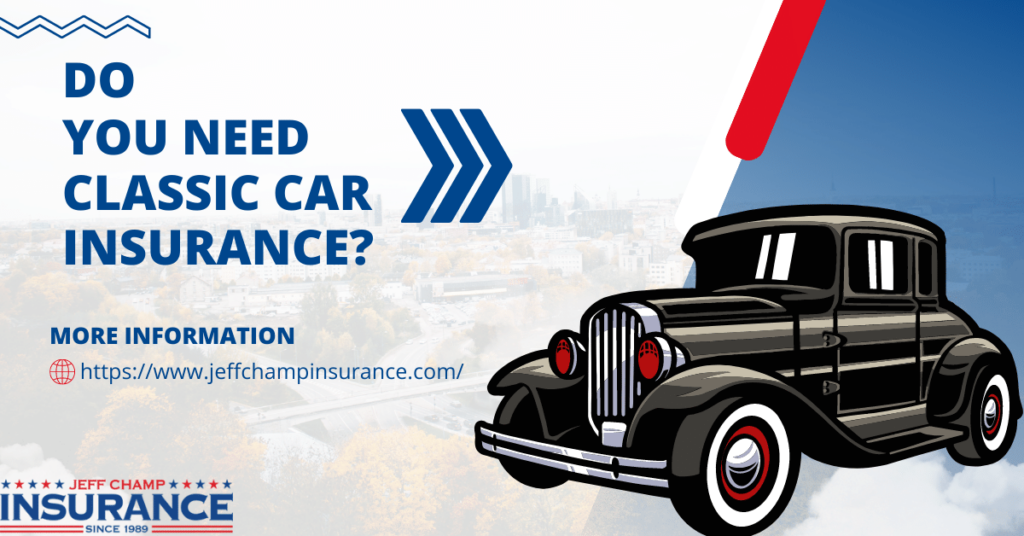Hello there!
I’m Jeff Champ, your trusted Farmers Insurance agent, and I’m here to discuss a topic of interest to many car enthusiasts – classic car insurance. As a car owner, you understand the basic concept of auto insurance, but classic cars are unique, not just because of their age but also due to the value and sentiment they carry. Therefore, they require a different type of protection compared to your everyday car.
What Qualifies as a Classic Car?
There isn’t a universally accepted definition of a classic car, but most definitions include aspects like rarity, age, condition, and value. Some insurers define classic cars as vehicles that are 20 or more years old and in good working condition. However, it varies by insurance provider and policy.
Why Consider Classic Car Insurance?
Unlike traditional car insurance, classic car insurance typically offers “agreed value” coverage, which means you and your insurer agree on a specific value for your car. If your classic car gets totaled, the insurer will pay the agreed-upon value. This differs from regular car insurance, which only covers the “actual cash value” or the depreciated value of the car at the time of the accident.
Classic cars often appreciate in value over time, especially if they are well-maintained or restored. Regular car insurance might not account for this appreciation when determining your payout after an accident.
Also, if you’ve invested significantly in restoring and maintaining your classic car, classic car insurance might offer better protection for these improvements.
What to Consider When Opting for Classic Car Insurance?
Before opting for classic car insurance, consider the following factors:
- Usage: Classic car insurance often has driving restrictions. These can limit how much you can drive the car annually and can also specify that the car should only be used for exhibitions, club activities, and other non-daily driving activities.
- Storage: Insurers may require that you store your classic car in a secure, enclosed structure to protect it from theft and environmental damage.
- Regular Use Vehicles: Most classic car insurance policies require policyholders to own another vehicle for daily use. The classic car should not be used as a primary mode of transportation.
- Condition: Some classic car insurance policies might require that your car is in good working condition or is being actively restored to such a condition.
- Driver Age: Some insurers might have age requirements or driving experience requirements for classic car insurance.
The decision to opt for classic car insurance depends on your vehicle, how you use it, and your personal preferences. If your car has significant value and you only use it sparingly, classic car insurance could provide the appropriate level of protection and potentially save you money.
Peace of mind, every time,
Jeff Champ, your Farmers Insurance Agent


